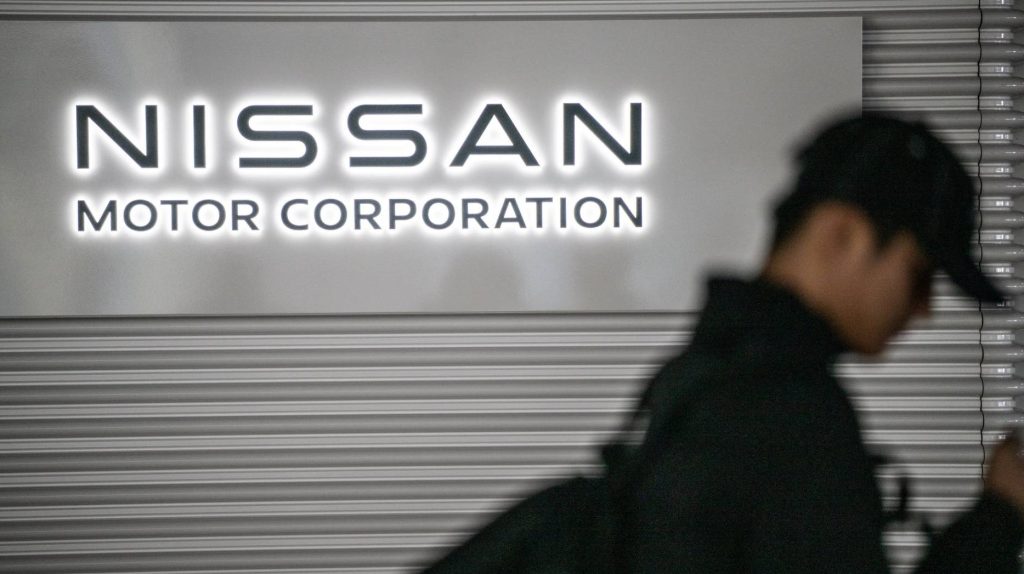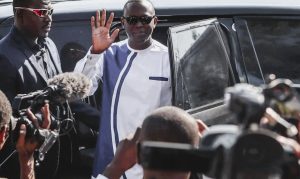Nissan says it could share global plants with Chinese state firm
3 min read
Nissan eyes global factory integration with Dongfeng amid sweeping job cuts and production shifts.
Japanese carmaker Nissan is considering a global shift in its manufacturing approach by opening its production ecosystem to its long-time Chinese partner, Dongfeng. As the company undertakes a major restructuring to address falling sales and rising operational costs, the collaboration could lead to shared factory usage across different regions.
In an exclusive statement to the BBC, Nissan revealed that Dongfeng, a state-owned Chinese automobile manufacturer, may be integrated into Nissan’s global production network. The move is part of broader efforts to reduce costs and streamline operations, particularly at a time when Nissan is dealing with declining performance in key international markets.
Earlier this week, the company announced that it would lay off 11,000 workers and shut down seven of its manufacturing plants worldwide. These job cuts come on top of 9,000 layoffs revealed last November. Altogether, the workforce reduction will impact around 15% of Nissan’s global employees. However, the company has not yet disclosed which specific plants or regions will be affected.
Ivan Espinosa, Nissan’s new Chief Executive Officer, addressed concerns about the company’s UK operations during a Financial Times automotive conference. He confirmed that the Sunderland plant — which employs around 6,000 people — remains a key part of Nissan’s short-term strategy. “We have announced that we are launching new cars in Sunderland,” he said. “In the very short term, there’s no intention to go around Sunderland.”
Nissan currently employs approximately 133,500 people globally. Despite the job cuts, the company maintains that Sunderland and its production of electric vehicles like the Leaf and Juke remain central to its long-term ambitions, especially amid growing global demand for electric mobility solutions.
In the UK, the government recently reinforced its commitment to Nissan’s presence. The company’s battery partner, AESC, secured a £1 billion ($1.3 billion) funding package to build a new battery plant in Sunderland. This plant will support production for Nissan’s electric vehicle lineup, a move that Chancellor of the Exchequer Rachel Reeves said would “deliver much-needed high-quality, well-paid jobs to the North East.”
Nissan’s strategic shake-up comes at a turbulent time. Its own-brand vehicles have struggled in the Chinese market, the world’s largest for automobiles, where fierce local competition has driven down prices and squeezed profit margins. Despite a 20-year partnership with Dongfeng, Nissan has found it challenging to capture a significant market share.
The potential move to integrate Dongfeng into Nissan’s broader global production footprint could be an attempt to bolster efficiency and reduce reliance on underperforming regions. The two companies currently co-manufacture vehicles in Wuhan, China, a key production hub for their joint operations.
Meanwhile, Nissan is also grappling with internal challenges, including leadership changes and failed attempts at forging strategic alliances. A high-profile merger discussion with fellow Japanese carmaker Honda collapsed in February, reportedly due to disagreements over the valuation and structure of a potential multi-billion-dollar deal.
Following the collapse of those talks, former CEO Makoto Uchida stepped down, and Ivan Espinosa — formerly head of planning and motorsports — was promoted to the top leadership role. Espinosa is now tasked with navigating Nissan through this pivotal moment as it battles falling revenue, strained partnerships, and external market pressures.
Adding to its woes, Nissan reported a staggering annual loss of 670 billion yen ($4.6 billion; £3.4 billion). Trade tensions, including tariffs imposed by former U.S. President Donald Trump, have further complicated the company’s ability to stay competitive in global markets.
Despite the financial hit and operational uncertainties, Nissan appears determined to reconfigure its global footprint. By potentially integrating Dongfeng into its wider network and focusing on electric vehicles and battery production, the automaker is betting on long-term resilience.





